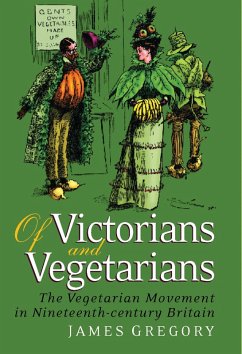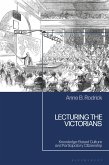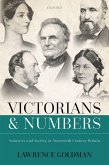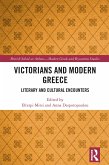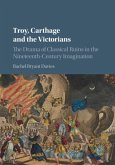Nineteenth-century Britain was one of the birthplaces of modern vegetarianism in the west, and was to become a reform movement attracting thousands of people. From the Vegetarian Society's foundation in 1847, men, women and their families abandoned conventional diet for reasons as varied as self-advancement via personal thrift, dissatisfaction with medical orthodoxy, repugnance towards animal cruelty and the belief that carnivorism stimulated alcoholism and bellicosity. They joined in the pursuit of a more perfect society in which food reform combined with causes such as socialism and land reform.
James Gregory provides an extensive exploration of the movement, with its often colourful and sometimes eccentric leaders and grass-roots supporters. He explores the rich culture of branch associations, competing national societies, proliferating restaurants and food stores and experiments in vegetarian farms and colonies.
'Of Victorians and Vegetarians' examines the wider significance of Victorian vegetarians, embracing concerns about gender and class, national identity, race and empire and religious authority. Vegetarianism embodied the Victorians' complicated response to modernity. While some vegetarians were averse to features of the industrial and urban world, other vegetarian entrepreneurs embraced technology in the creation of substitute foods and other commodities. Hostile, like the associated anti-vivisectionists and anti-vaccinationists, to a new 'priesthood' of scientists, vegetarians defended themselves through the new sciences of nutrition and chemistry.
'Of Victorians and Vegetarians' uncovers who the vegetarians were, how they attempted to convert their fellow Britons (and the world beyond) to their 'bloodless diet' and the response of contemporaries in a variety of media and genres. Through a close study of the vegetarian periodicals and organisational archives, extensive biographical research and a broader examination of texts relating to food, dietary reform and allied reform movements, James Gregory provides us with the first fascinating foray into the impact of vegetarianism on the Victorians. In doing so he gives revealing insights into the development of animal welfare, other contemporary reform movements and the histories of food and diet.
James Gregory provides an extensive exploration of the movement, with its often colourful and sometimes eccentric leaders and grass-roots supporters. He explores the rich culture of branch associations, competing national societies, proliferating restaurants and food stores and experiments in vegetarian farms and colonies.
'Of Victorians and Vegetarians' examines the wider significance of Victorian vegetarians, embracing concerns about gender and class, national identity, race and empire and religious authority. Vegetarianism embodied the Victorians' complicated response to modernity. While some vegetarians were averse to features of the industrial and urban world, other vegetarian entrepreneurs embraced technology in the creation of substitute foods and other commodities. Hostile, like the associated anti-vivisectionists and anti-vaccinationists, to a new 'priesthood' of scientists, vegetarians defended themselves through the new sciences of nutrition and chemistry.
'Of Victorians and Vegetarians' uncovers who the vegetarians were, how they attempted to convert their fellow Britons (and the world beyond) to their 'bloodless diet' and the response of contemporaries in a variety of media and genres. Through a close study of the vegetarian periodicals and organisational archives, extensive biographical research and a broader examination of texts relating to food, dietary reform and allied reform movements, James Gregory provides us with the first fascinating foray into the impact of vegetarianism on the Victorians. In doing so he gives revealing insights into the development of animal welfare, other contemporary reform movements and the histories of food and diet.

